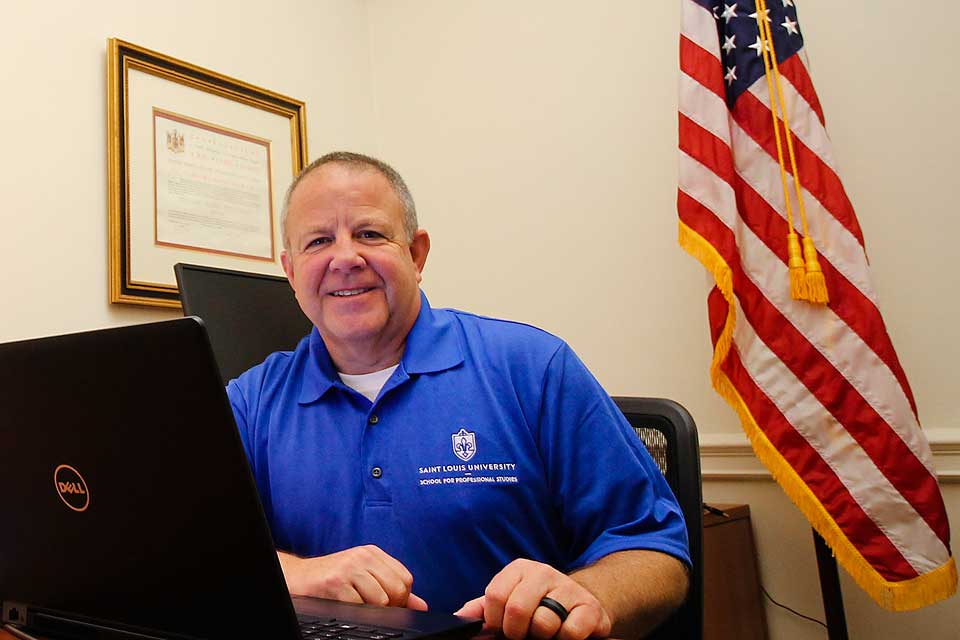SPS's New Online Emergency Management Program Prepares Crisis Response Leaders
Every year, major cities, small towns and rural areas across the country and around the world are faced with catastropic disasters.
The result of storms, floods, earthquakes and fires is devastation that impacts every segment of the population. From individuals to businesses, schools and hospitals, response time and a strategic directed plan of action is crucial to recovery. Informed leadership is critical to that process.
The School for Professional Studies at Saint Louis University has introduced a new online program for educating new emergency management professionals as well as enhancing the knowledge of current professionals in the field.
Shawn Steadman, director of SLU’s Emergency Management/Homeland Security Program, is a veteran emergency management leader who has years of experience at sites following storms and other major disasters, including the recent hurricanes along the eastern coastal area. He says life safety, stabilizing the incident, and protecting critical infrastructure and assets are the three priorities of emergency managers.
“As emergency managers, we provide the coordination and collaboration between all personnel responding to an incident,” Steadman said. “We operate in five different phases: mitigation, preparation, prevention, response and recovery.”
Steadman noted that although response is the phase most individuals are familiar with, the work going on when not on site is significant in preparing to respond for future events.
“When we aren’t responding we are actively writing plans, coordinating with our partners, and developing processes to train and exercise all responding personnel,” Steadman said. “At the same time, we are mitigating any potential disasters or man-made incidents (terrorism) to lessen the impact if there is an incident.”
Emergency managers are responsible for coordinating and organizing the response of multiple sectors including, but not limited to; transportation, communications, public works, firefighting, mass care, logistics, public health and healthcare, search and rescue, hazardous materials response, agriculture and natural resources, energy, public safety and law enforcement, media and external affairs, military, businesses, and recovery from the incident.
“As you can see, this is a huge undertaking and it can’t be done alone,” said Steadman. “Emergency managers are like the quarterback of a football team. We have lots of players and everyone has their role and responsibility. Most of us are on-call 24 hours a day, seven days a week standing by with “go-kits” ready to deploy wherever the next incident occurs.”
SLU’s Online Emergency Management Program, offered through the School for Professional Studies, prepares students for today’s dynamic, fast-paced workforce and provides real-world knowledge and skills to support professional growth and advancement.
Click here for additional information on the Online Emergency Management Program.


















